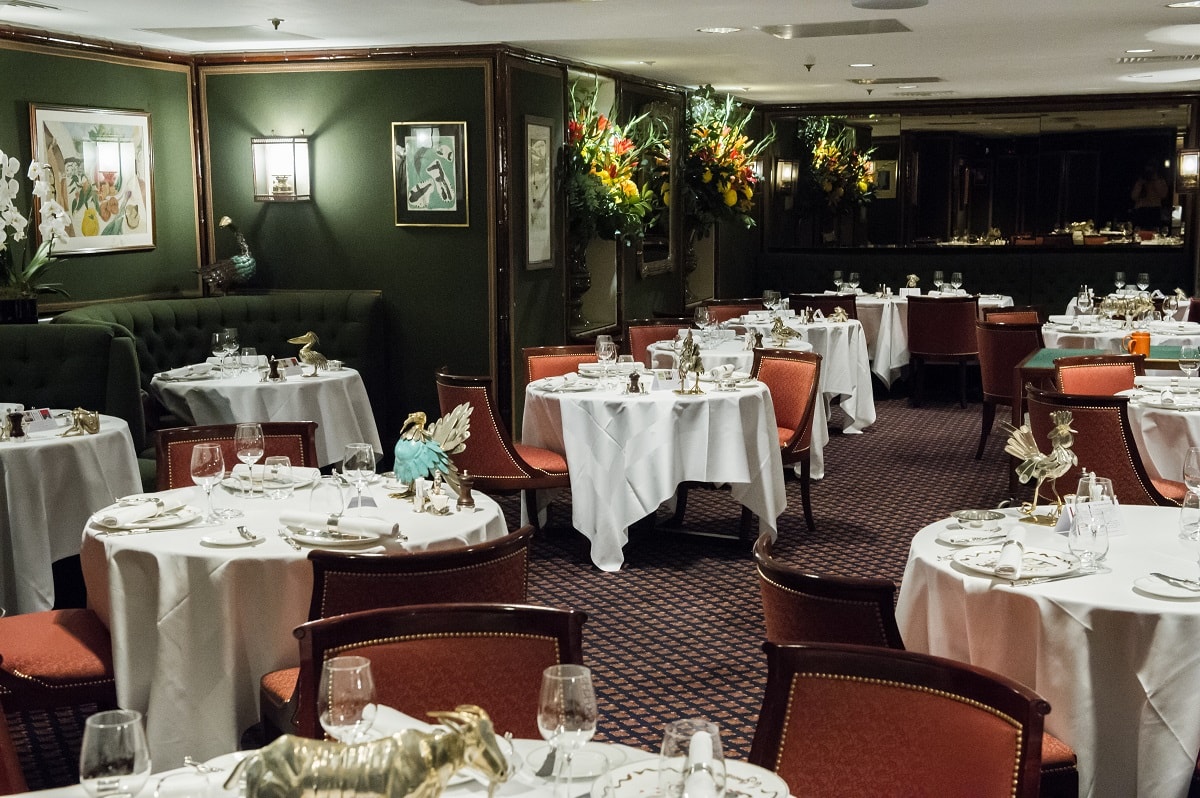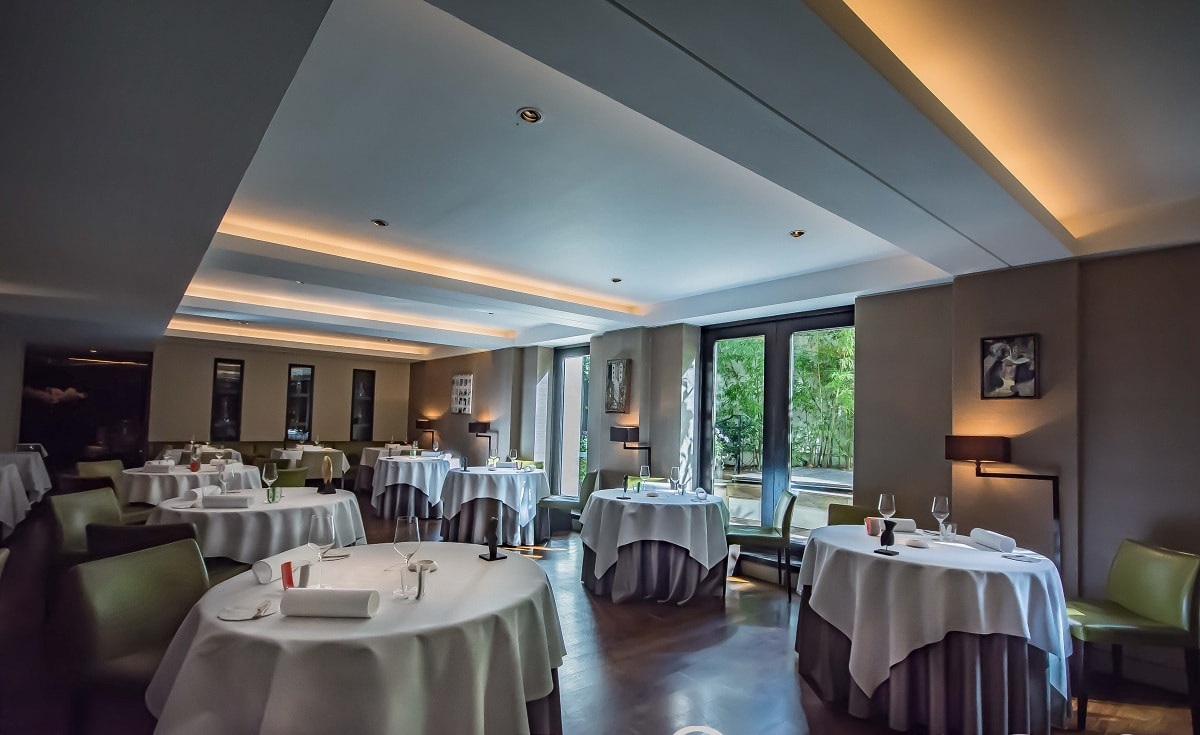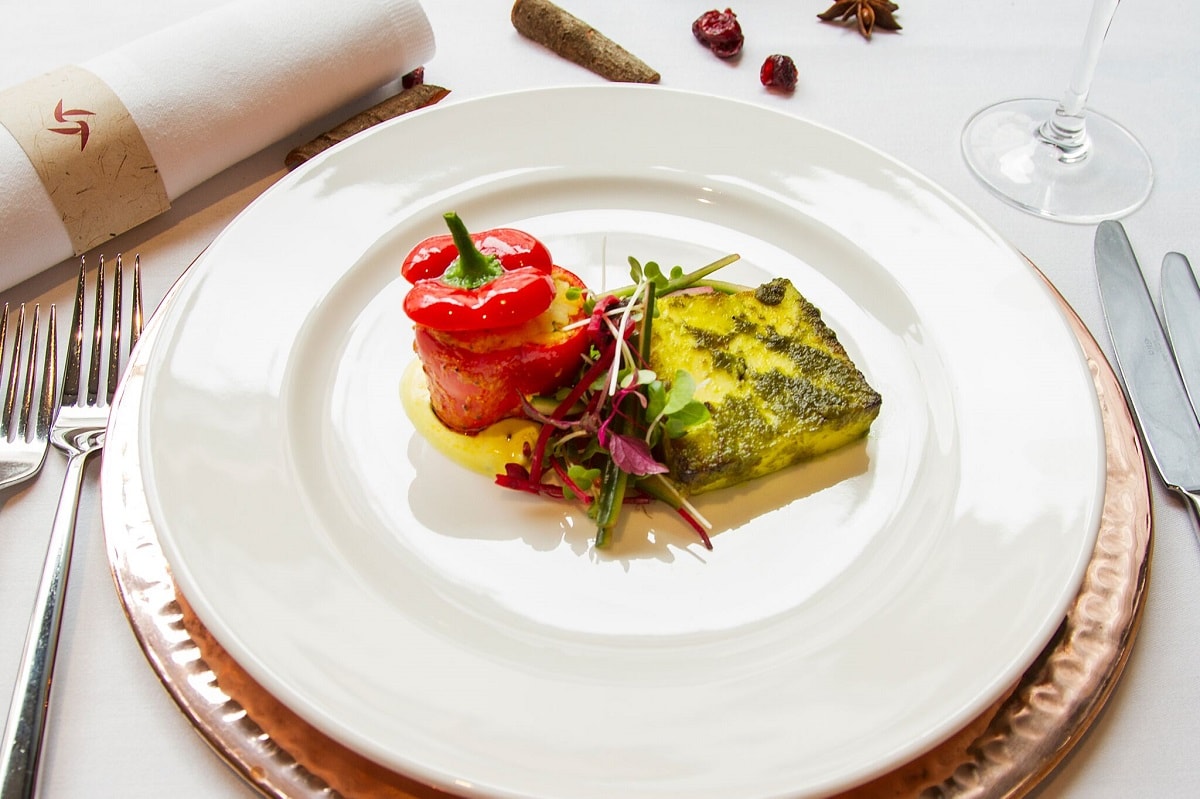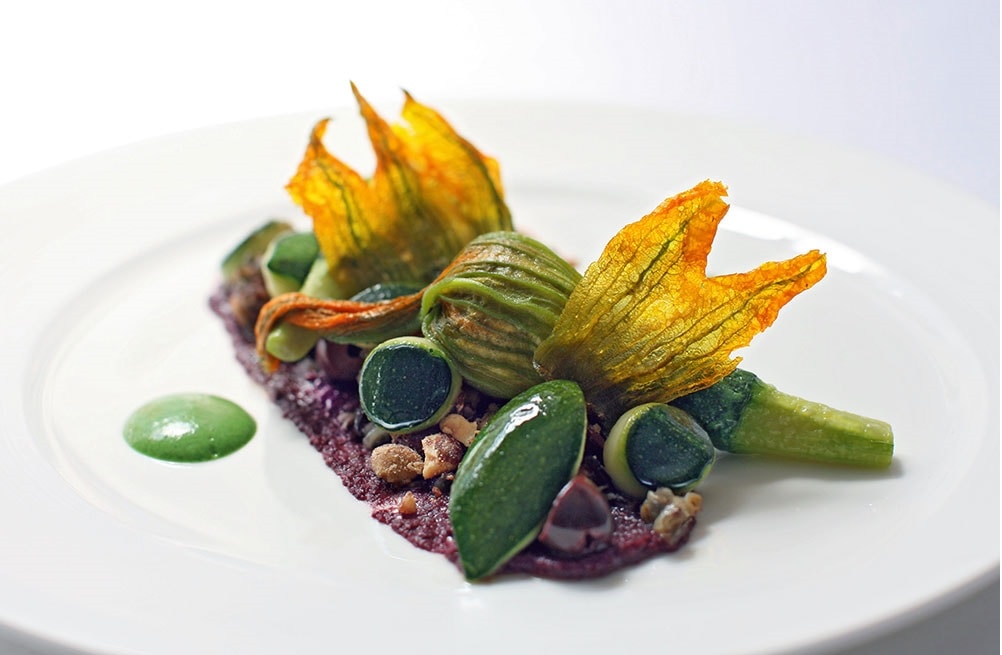Miscellaneous, Recipes
Chef's Recipe : Rhubarb Souffle, Pain D'Epices and Pomegranate Sorbet by AG's Restaurant at Alexander House Hotel
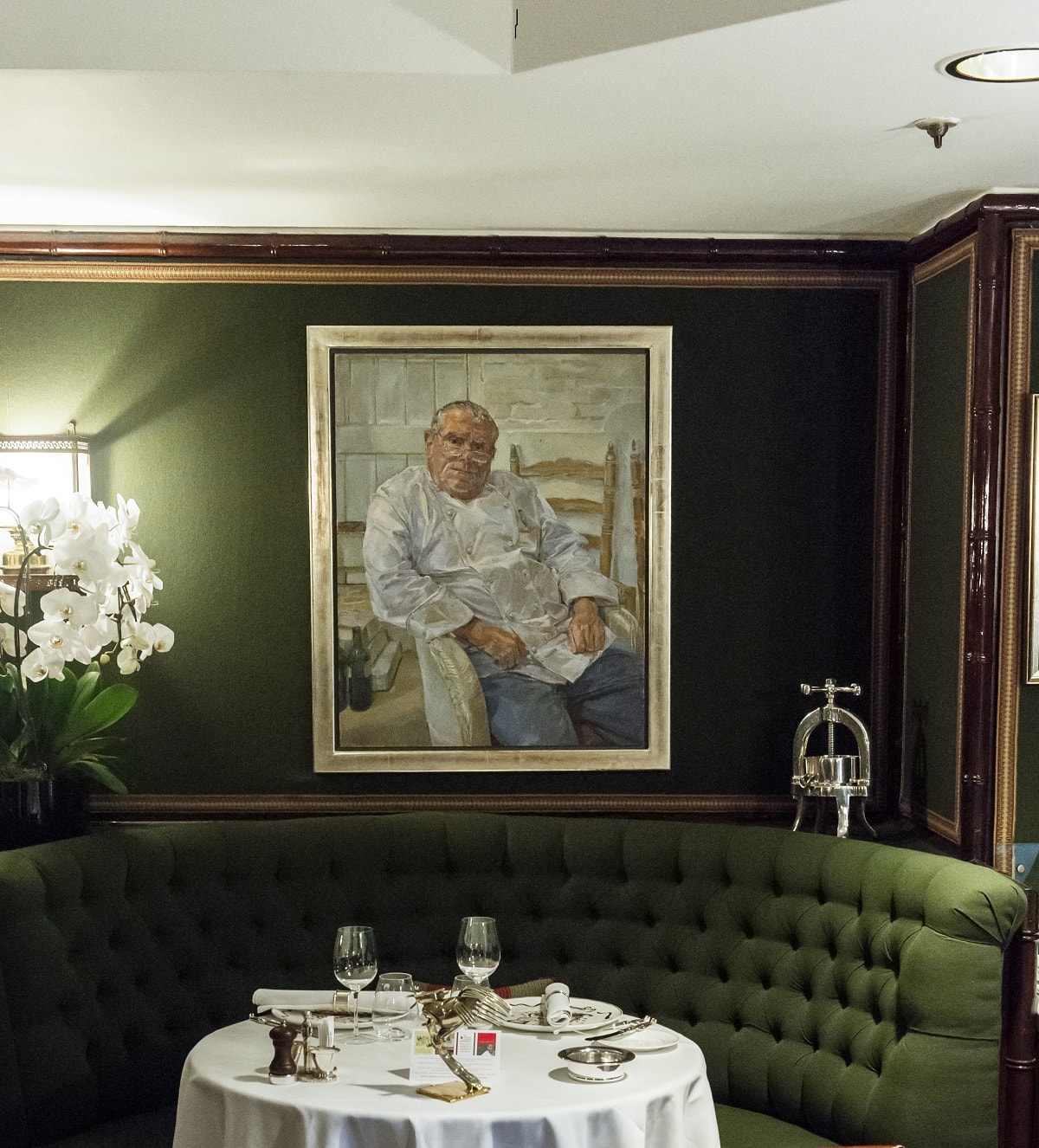
Chef News, Miscellaneous, Recipes
Chef's Recipe : Welsh Lamb with broad beans, turnip and tarragon by James Sommerin
5 Restaurants That Changed the UK – And One That’s About To
Every few years, a chef or restaurant comes along that changes the way we fine dine. Charting the last fifty years the UK has seen a remarkable culinary transformation, one that reflects evolving tastes, appreciations of fine food, affluence and cultural trends. Gastronomic dining encompassing styles from: haute cuisine; nouvelle cuisine; modern British cooking; regional British food; molecular cooking techniques; exotic ingredients; simple, less expensive ingredients; foraging; ethnic cuisine; and relaxed fine dining. The diversity of the British culinary scene, which includes its chefs and cuisine, is reigning supreme and spreading from London to all areas of the country.
Here the Luxury Restaurant Guide showcases the restaurants that have made important contributions to changes in the industry:
Le Gavroche, 43 Upper Brook Street, Mayfair, London W1K 7QR
One of the most influential restaurants and chefs of our lifetime has been Albert Roux at Le Gavroche. The French chef who came to the UK to work in various private houses, including for Nancy Astor at Cliveden, teamed up with his brother Michel in 1967 to open Le Gavroche, unleashing haute cuisine to the capital. In 1974 Le Gavroche became the first restaurant to attain a Michelin star in the UK, and then when second and third stars were granted, it again was first in the UK to attain these categories. Albert’s influence is legendary, having trained most of today’s most influential chefs to the French cooking style, including Marco Pierre White, Gordon Ramsay, Rowleigh Leigh, Martin Wishart, Andrew Fairlee, Pierre Koffman and Marcus Wareing. The Roux scholarship was launched in 1985, where successful candidates win an internship in a top kitchen almost anywhere.
The Greenhouse, 27a Hays Mews, London W1J 5NY
We hark back to Gary Rhodes tenure as head chef at The Greenhouse in 1990 where the concept of ‘Modern British’ cuisine was being coined around the same time. A collection of chefs were at the forefront of turning away from a heavy leaning towards French cooking – due in part to the influential French chefs training many of them in the first instance. Chefs of the day championing the movement include Marco Pierre White, Fergus Henderson, John Burton Race, Shaun Hill, Rowley Leigh and Alistair Little. Modern British cuisine was phrased to be regional produce, seasonal vegetables, plain roasts and meat that is unpretentiously presented. Gary flew the nest of The Greenhouse in 1997, and it has since returned to French style. Gary is currently living and working in Dubai.
Fat Duck, High Street, Bray, Berkshire SL6 2AQ
Heston Blumenthal had an interesting start to his cooking career, leaving his apprenticeship at Raymond Blanc’s Le Manoir after one week’s probation. From here he went on to other non-related professions, but taught himself French cooking techniques in the evening before striking on challenging all former cooking techniques, like searing meats to seal in flavours – his style became to question everything, advocating scientific understanding in cooking and make diners think about processes to transform the food unexpectedly, i.e. the appearance of the dish disguising its taste. Although he didn’t invent the style, which is probably best attributed to an Oxford Professor Nicholas Kurti, he certainly became one of the most well known advocates alongside Chef Ferran Adria of El Bulli.
His technique is often described as deconstruction and reconstruction, or molecular cuisine, where traditional national dishes take on a new meaning – such as creating egg and bacon ice cream. Molecular cuisine uses chemicals and thickening liquids such as nitrogen, xanthan, alginate and lactat to create emulsions or spherification for multi-sensory cooking, food pairing and flavour encapsulation. The Fat Duck opened in 1995 and has received critical acclaim ever since, holding the prestigious accolade of 3 Michelin stars. Heston Blumenthal was also awarded the 2017 Diners Club Lifetime Achievement Award at The World’s 50 Best Restaurants.
Tamarind, 20 Queen St, Mayfair, London W1J 5PR
We include Tamarind for its progression of ethnic cuisine, creating a fine dining culture for Indian food, much loved in the UK, but prior to this it was seen as a low-value food. Tamarind, then with Head Chef Atul Kochhar (who is now at Benares) was the first Indian restaurant to be recognised by Michelin and attain a Michelin star anywhere in the world back in 2001. Today, London in particular is at the epicentre of Indian cooking outside of the Subcontinent, with a rich array of highly elegant and modern Indian restaurants. Tamarind still retains its Michelin star and is currently closed whilst it undergoes a significant revamp to its interiors and menu, which we look forward to reporting in when it reopens in late summer 2018.
The Eagle, 159 Farringdon Road, London EC1R 3AL
The Eagle in Clerkenwell has been attributed as one of the UK’s first ever gastropubs in 1991, that then spawned this dining revolution. It started as a typical London boozer, until Michael Belben and David Eyre took it over. They formerly worked in Covent Garden restaurants and yearned to open one of their own but the rents and premiums were prohibitive, plus the cost of providing all the expected trappings of restaurant service just couldn’t be justified. At the same time the big brewery companies were selling off their sites at affordable rates, and subsequently the birth of The Eagle. It proved that good quality food could be enjoyed in a new type of pared down and relaxed setting, where diners embraced greater simplicity and also foods that took their inspiration not only from France but Italy and the US.
And here’s one we predict to make a significant impact:
Gauthier Soho, 21 Romilly Street, London W1D 5AF
For a celebrated French chef to announce that within two years all menus at Gauthier Soho will be totally vegan is nothing short of miraculous. Yet this has been a progressive journey, both personal and also financially astute, for Michelin-starred Chef Alexis Gauthier. Following a bad experience with PETA for serving foie gras he became conscious of animal suffering, and, citing ‘compassion with animals, with the environment, with the future’ he has progressively moved away from meat and fish dishes. Currently 75% of the menu is vegan and 25% is non vegan, but now they will also not be creating any new dishes involving meat or fish or things with egg or butter. Their creativity is to purely lie in veganism, thus the projection of a fully vegan menu within two years. The restaurant doesn’t appear to have suffered any ill effects and are now serving a younger, more dynamic, forward-thinking customer. We hope this will be a pivotal moment for more locations to have confidence and celebrate vegetables and fruits just as much as meat and fish.
Discover the finest restaurants in the country with substantial savings
with the free Luxury Restaurant Guide app
Download here

